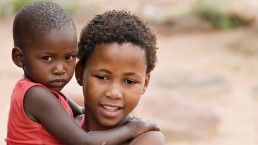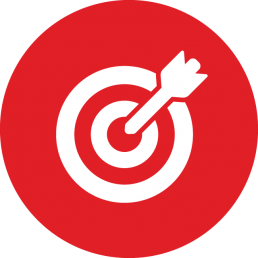THE NEED
Statistics show that Nigeria reportedly constitutes the largest part of Africa’s internally displaced persons (IDPs) about 3.3 million IDPs, with about 470,500 displaced in 2013. World over, decades past and countless interventions after, communities have and still continue to suffer the ravaging effects of conflict, post-conflict and/or natural disasters with far-reaching implications on mortality-injury and death, economic loss, deprivation of basic human needs and resources, and homelessness. Regardless of the root cause of these disasters, be it conflicts such as ethnic clashes, ethno-religious crisis, insurgency, war, secession or natural disasters, ranging from earthquakes, floods, hurricanes, tsunami, wildfires, extreme weather conditions, drought, famine, landslides, epidemics etc, the disheartening results in victim counts and dire need of resources are the same.
In 2018 Nigeria’s national relief agency (NEMA) declared a national disaster following severe flooding that killed about 100 people, trapped thousands in their homes and deluged farms across the four worst hit states of Kogi, Niger, Delta and Anambra. Ogun, Katsina, Nassarawa and Benue are also states that have been affected by flood in 2018 alone, displacing hundreds of thousands.
Relief efforts are driven by the overarching mission of saving lives by swiftly combating and alleviating the grave effects of disasters or conflicts. They serve to give victims a lifting hand out of devastation and inspire hope by improving their health, education, food security and sustainable livelihood outcomes.
As a result of the multiple needs required to be addressed, there is a founded need for a strong, rapidly responsive network that can drive individuals and communities alike to take action with little acts of kindness. There is a need for the design of the relief hub to inspire and organise opportunities for individuals and groups to give locally and accelerate community-led philanthropy and rehabilitation for victims of disasters, conflicts and disenfranchised members of society.
ABOUT THE PROJECT
Relief hub involves the execution of projects that help people, repair damages, get their life back on track after a natural or manmade disaster or as a result of the condition they find themselves in. The focus of this project is to provide support to the underprivileged, and disenfranchised members of society as we work with them to help them lead an appreciable standard of living.
The relief hub goal is to execute the following projects;
- Feeding or Clothing mission.
- Sanitary and Hygiene missions.
- MSMEs & Trading Grants.
- Disaster Relief
- Orphanages or IDP camp outreach
- Scholarships and subsidized educations support.
- Health Outreaches.

THE ACTIONPLAN
We will work with our partners, engage host communities and relevant stakeholders to fund and deliver on efforts that provide the needed relief to disenfranchised members of society.
Track the execution and impact of projects that were executed on the host communities.
4 Year Target

RAISE FUNDS
Raise over 50 million in donations towards executing relief projects.

RELIEF PROJECTS
Inspire, empower and collaborate with over 50 development actors made up of individuals and organizations to execute relief projects.

IMPACT
Ensure that over 300,000 people across 36 communities are impacted by these relief efforts with 60% recording an improvement in their livelihood.